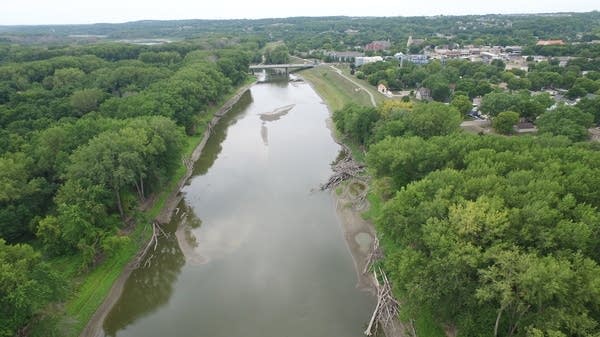Part of skull found along Minnesota River belongs to man from 8,000 years ago

The Minnesota River near Shakopee, Minn.
Courtesy Minnesota Pollution Control Agency
Go Deeper.
Create an account or log in to save stories.
Like this?
Thanks for liking this story! We have added it to a list of your favorite stories.


